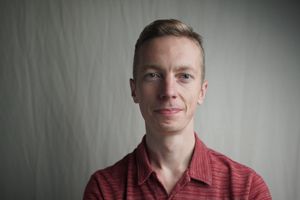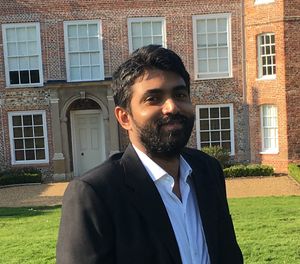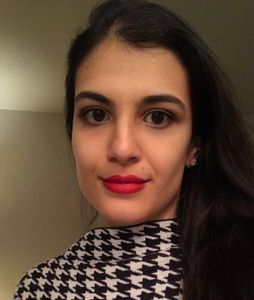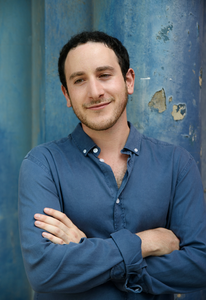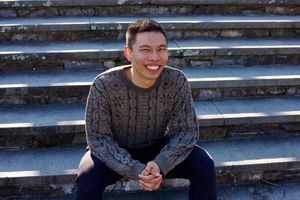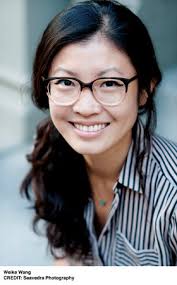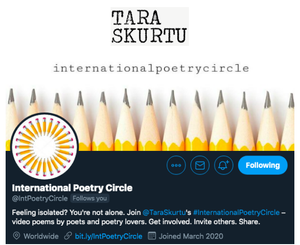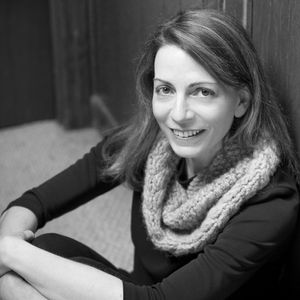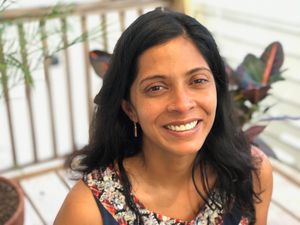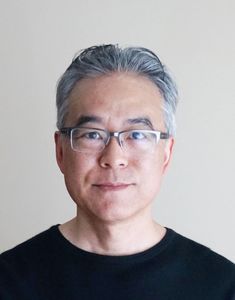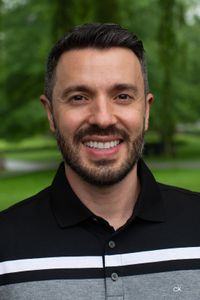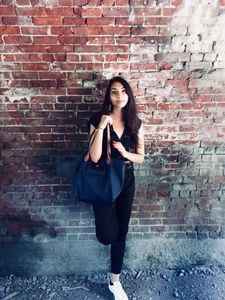
We're super excited to celebrate with Anitha Ahmed, who earned her MFA from Boston University and MD from Thomas Jefferson University this month! Anitha generously took the time to tell us more about her path to becoming a doctor and a writer, her time at BU, and what she's reading and writing these days.
When and how did you decide you wanted to be a doctor?
My grandmother was really ill and lived in my family's house for most of my childhood, and I was always encouraged to be part of her care. I would take her vitals and weight every morning and test her blood sugar, and I'd translate for her home nurse whenever my parents weren't around. When I got a bit older, I started going with her to her doctor's appointments and keeping track of her different medications. She was so unconditionally loving and would insist on cooking for me even when she found it difficult to stand; I remember her spending hours sitting at the dining table to make the dough for potato parathas, which were my favorite things to eat as a child. On Eid day, she'd be in the kitchen from as early as 3 am making us our favorite sweets for the holiday; I'm thinking about this especially now because it's almost Eid. Anyway, taking care of her and seeing her in all her stages of health and illness piqued my interest in medicine and care-taking from an early age.
What about becoming a writer - how did you decide to get an MFA?
I really can't remember a time I didn't consider myself a writer. When I was a kid I used to write these awful poems and short stories (there was one series I was quite proud of about a single mother leopard raising her four cubs in the Serengeti) and it was one of my favorite pastimes. Even in high school when I wasn't writing or even reading much, I considered being a writer central to my identity. I went through so many existential crises in college about whether or not I wanted to forego medicine and put all my cards into writing, and ultimately received enough encouragement from the right people to make me feel like I could do both. So I took all the creative writing classes I could in undergrad and applied for an MFA my third year of medical school--getting into BU's one year program really felt serendipitous. The rest is history!
Anything you'd like to say about your year at BU? Favorite moments or most helpful parts?
I feel so nostalgic towards the year at BU! My favorite parts of it were making lifelong friends who care about writing and literature as much as I do. We would always get together outside of class - at one of our apartments, the BU pub, and other haunts - and it made all the difference in the year. I still keep in touch with and share my work with so many of them, and I feel like it's just a great community to be part of while I take the plunge into my medical career over the next few years.
How does your practice of medicine influence your writing, and vice versa?
I do feel like a lot of my writing includes themes of aging, anxiety, and illness, which is probably influenced by my experiences in medicine. On the medical side, I feel like my background as a writer helps me cultivate a deeper empathy and understanding for my patients, and (I hope) gives me a creative rather than purely analytic approach when I'm coming up with medical plans.
What kind of medicine do you want to practice?
I'm going to be training as a pediatrician, starting in June!
Any writing rituals?
My favorite writing ritual used to be spending the day in a coffee shop, reading for awhile and then settling into a project, but I've had to adapt with quarantine - these days I've been trying to write just before bed, or when I just wake up, and I've (somewhat) recreated the cafe vibe by sitting at our island counter with a cup of coffee or tea.
What are some of your favorite books?
There are too many to list! From the past 365 days, my favorite books have been The Great Believers and Music for Wartime by Rebecca Makkai, and The Sympathizer and The Refugees by Viet Than Nguyen. I also finally finished Crime and Punishment this past month, which definitely lived up to all the hype.
What are you reading these days?
Right now I'm reading Ishiguro's Never Let Me Go, which is beautiful so far!
What are you working on now (if you want to share)?
I am working on a novel about a Pakistani doctor named Nadia, as well as a short story collection!
Thank you so much, Anitha, and hearty congratulations! We wish you all the luck in the world for your writing and your medical career, and we're so grateful to you and other healthcare workers during this time in our world.
Anitha Ahmed earned her MFA from Boston University and her MD from Thomas Jefferson University in May, 2020. At Boston University, she was awarded the Florence E. Randall Graduate Fiction Prize and the Robert Fitzgerald Translation Prize; at Thomas Jefferson University, she was supported by the Mouzarkel Art in Medicine Scholarship. In June, she will be starting her medical residency in pediatrics at Los Angeles County-University of Southern California Medical Center. Her creative work has appeared in Calyx Journal, Bat City Review, Bodega Magazine, Journal of the American Medical Association, and The Huffington Post. She is currently working on her first novel, titled Nadia.
